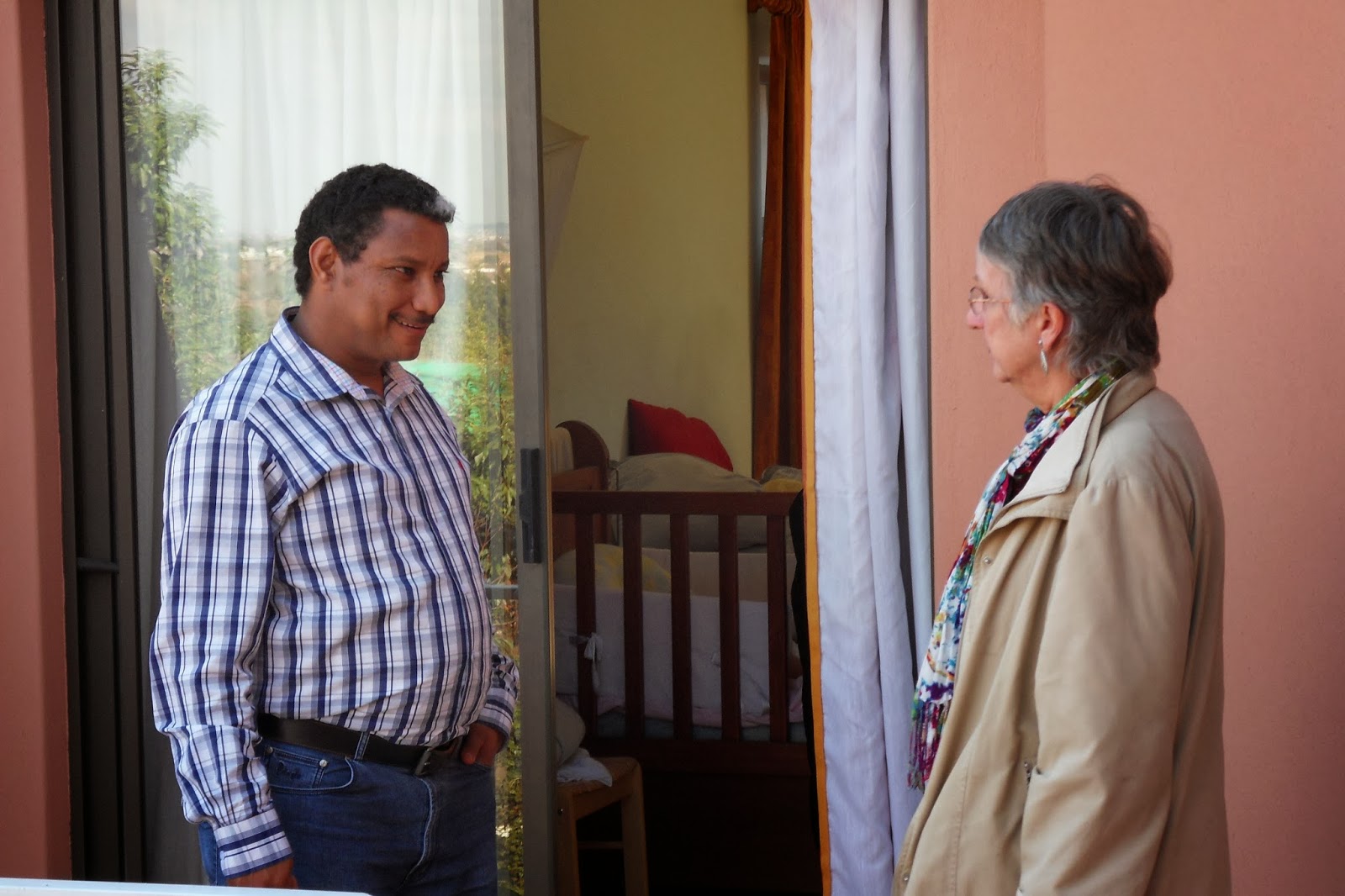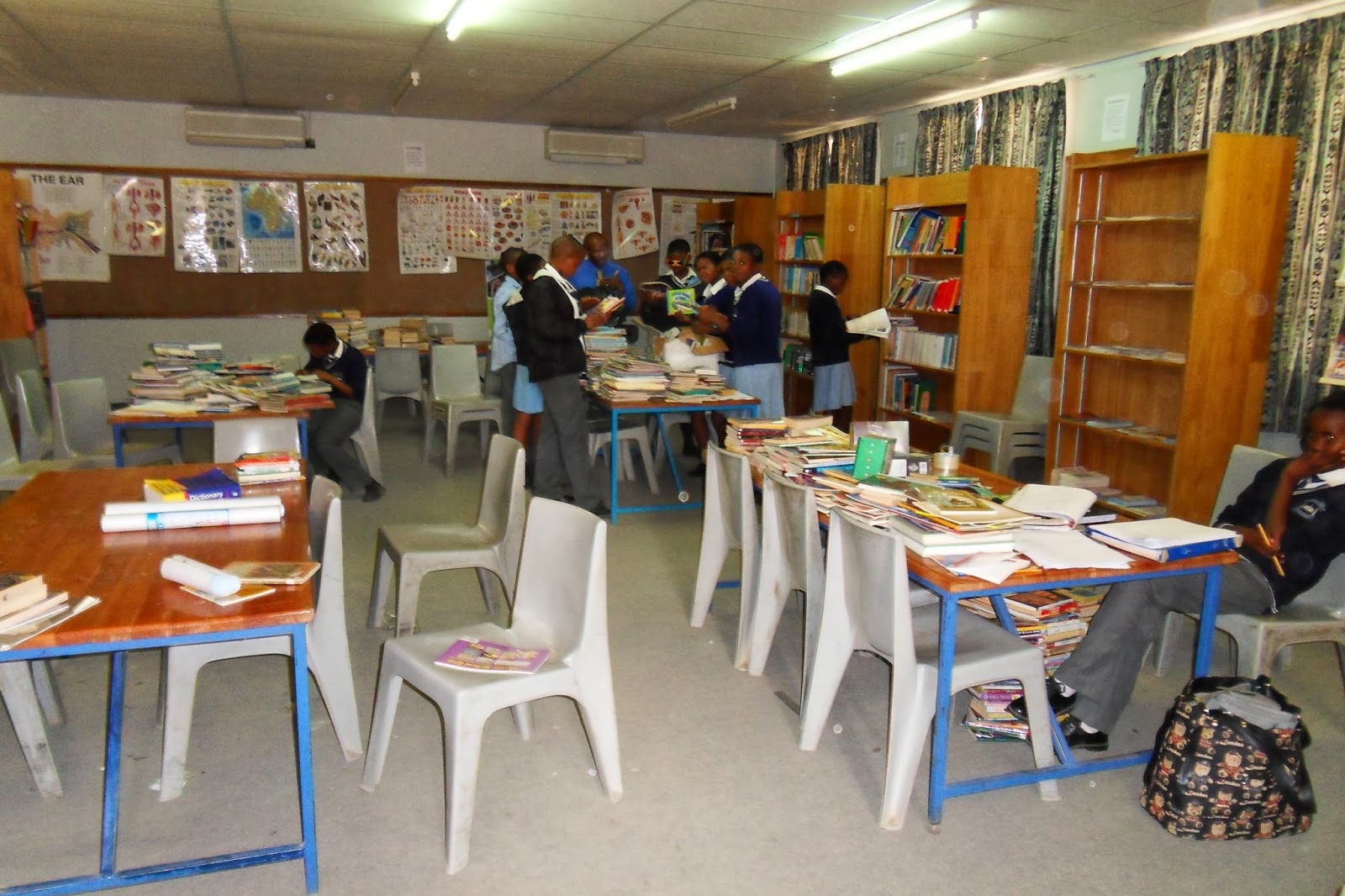July 27, 2014
Remember back in early 2013 when
I wrote about the discipline of waiting?
Well I am still learning what it feels like.
There is not much longer to
wait. This week we Bots 13 Peace Corps
Volunteers participated in our Close of Service Conference which occurs about
three months before we finish our service.
So now we are switching gears and getting ready to leave Botswana.
In this blog entry I'm sharing
with you an acrostic and a question from a couple of the journal entries I
created recently.
Wishing the time
away
|
or
|
Working to fill
the minutes
|
Asking for
deliverance
|
or
|
Attending to
chores
|
Idling aimlessly
|
or
|
Interacting with
the environment
|
Tallying up the
seconds, minutes, days, weeks
|
or
|
Trying to be
useful
|
Imagining escape
|
or
|
Instigating
change
|
Numbing my brain
to the pain
|
or
|
Noticing every
transient moment of pleasure
|
Groaning and
Moaning
|
or
|
Grinning and
Bearing It
|
Not either/or, but
All of the Above!
Definition
of Sustainability: Give a man a fish and
he will eat for a day, teach a man to fish and he will eat for a lifetime.
What if: People said they loved cake and really
wanted to eat cake but that in their environment it was not possible to make
cake. So you showed them how to make a
cake and they enjoyed it very much, and you gave them the recipe after the
demonstration.
They made the cake and it did not rise, and you discovered they had left out the baking powder. They said they didn't have any baking powder so they just left it out. When you told them to get some baking powder and try it again they said they couldn't afford baking powder, so you gave them some. They made the cake again and this time they cut the amount of sugar in half, and the cake was rather tasteless. The next time they made the cake, they omitted the eggs. The next time they made the cake they baked it at a very low temperature. The next time they got distracted and busy with something else while making the cake and the batter sat on the kitchen cabinet for a week before they got back to it. Then, they baked the cake at a very high temperature because they were in a hurry.
Finally, they said they did not want to try making cake any longer because in their environment it was not possible to make cake.
The following week they phoned you at 6:00 a.m. and said they were desperately in need of your help! They were expecting 200 regional dignitaries for lunch at noon and they had promised to serve cake for dessert. Could you please provide enough cake for 200 people by noon, and no, there were no funds designated for supplies. By some strange coincidence you had just bought supplies the day before, and by working feverishly you were able to deliver 30 cakes to them just in time for dessert. Everyone was so appreciative and the cakes were thoroughly enjoyed. In fact they said they wanted to schedule a cake-making workshop as soon as possible.
However, a year later they had not been able to find time on the schedule to include a work shop and funding for workshops seemed to have disappeared. In the meantime, two people asked you for your cake recipe.
They made the cake and it did not rise, and you discovered they had left out the baking powder. They said they didn't have any baking powder so they just left it out. When you told them to get some baking powder and try it again they said they couldn't afford baking powder, so you gave them some. They made the cake again and this time they cut the amount of sugar in half, and the cake was rather tasteless. The next time they made the cake, they omitted the eggs. The next time they made the cake they baked it at a very low temperature. The next time they got distracted and busy with something else while making the cake and the batter sat on the kitchen cabinet for a week before they got back to it. Then, they baked the cake at a very high temperature because they were in a hurry.
Finally, they said they did not want to try making cake any longer because in their environment it was not possible to make cake.
The following week they phoned you at 6:00 a.m. and said they were desperately in need of your help! They were expecting 200 regional dignitaries for lunch at noon and they had promised to serve cake for dessert. Could you please provide enough cake for 200 people by noon, and no, there were no funds designated for supplies. By some strange coincidence you had just bought supplies the day before, and by working feverishly you were able to deliver 30 cakes to them just in time for dessert. Everyone was so appreciative and the cakes were thoroughly enjoyed. In fact they said they wanted to schedule a cake-making workshop as soon as possible.
However, a year later they had not been able to find time on the schedule to include a work shop and funding for workshops seemed to have disappeared. In the meantime, two people asked you for your cake recipe.
What
conclusions would you draw from this experience?


























